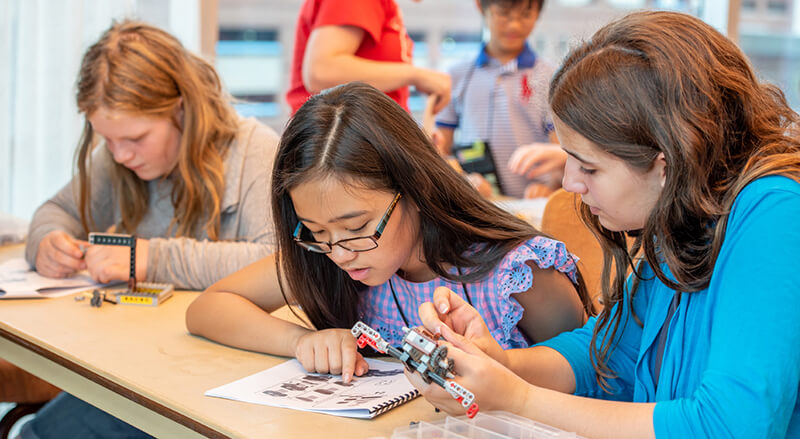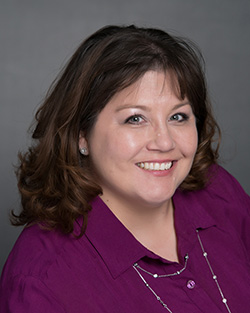The Purple Goldfish Theory: What Your Gifted Child Already Knows
When it comes to raising gifted kids, the most important thing to remember is to trust your instincts

To tell or not to tell: It’s the question every parent of a gifted child must answer sooner or later. I am asked at least five times a week! So, I have formed what I call the Purple Goldfish Theory.
Gifted kids are like purple goldfish. They spend all day swimming along in school with all the other goldfish. But unlike the other fish, they are purple — and they swim backward! They know they’re different from the other kids. No one has to tell them; they realize it on their own. And while purple goldfish know they are different, they don’t necessarily know they are gifted.
Parents I speak with are often reluctant to tell their children they’re gifted. Had they discovered their child was a brilliant artist, athlete, or musician, would they share that more freely? I believe the issue is that we can study or preform for those talents, making them easier to accept because we can see effort equal the result, whereas a gift of learning or processing information faster is harder to tie to effort.
Purple goldfish don’t need to know all the terminology. They just need help realizing they are not broken or weird for working at a different speed, as they lack the words and perspective to understand. Because giftedness is not universal across all subjects, it’s also helpful for gifted children to understand why they might excel, for example, in math but struggle in English.
Just as children need help understanding they are gifted, so too do their teachers. Often teachers in larger schools are not informed until well into the school year. A note to a teacher or a meeting could mean the difference between a mediocre learning experience and an enriched one. If your child needed glasses, but wouldn’t wear them unless made to, you would tell the teachers they should sit closer to the board. Informing a teacher about a child’s giftedness is no different.
This does not necessarily need to be done in a formal meeting or event; a simple note or email to the teacher at the beginning of the year or semester could do the trick. For example: “I just wanted to let you know that Suzie has tested as gifted/very high in language ability. If you would like more information I am happy to share.” And leave it at that. (Some parents avoid using the ‘g word’ altogether.) This lets the teacher know you have an advanced child and that they can follow up with you if they require more information.
The most important thing to remember about raising a purple goldfish is to trust your instincts. You know your child better than anyone else.
Purple goldfish have extra challenges. Often people assume that a gifted kid, and by extension their parents, have it easy when it’s often the exact opposite. Gifted children can struggle with social norming and are sometimes in stages of development and emotional maturity that make it harder to bond with their peers. Statistically, gifted individuals are 1 out of 100; this means that 99 percent of their peers are different from them. And this is before we add any additional diagnoses. It’s hard to be a purple goldfish! And these kids nevertheless want to find other purple goldfish — their people.
That is why places like Mensa can be so helpful. We also are starting to see more and more gifted schools across the country as well. Google “gifted and talented in [your location]” to find all the applicable laws, rules, and standards relevant to your state or school district.
The most important thing to remember about raising a purple goldfish is to trust your instincts. You’re the right parent(s) for your child. You know your child better than anyone else. Don’t allow anyone to place a label of convenience on your child that doesn’t actually fit them. Love your child and remember that despite any advanced talents, they’re just kids — and they need you. You have been given the gift of a rare and special purple goldfish; treasure them, for they may one day change the world!
Related Resources
- Pros and Cons of Telling Children They Are Gifted — Carol Bainbridge, Verywell Family
- Is My Child Gifted? — National Association for Gifted Children
- What to say to your gifted child…about being gifted —Gail Post, Ph.D., Gifted Challenges
- Is your kid really gifted? Probably not — Paula Spencer, Parenting.com via CNN
- Should we tell them they're gifted? Should we tell them how gifted? — Draper Kauffman, Hoagies’ Gifted Education
- Talking about Giftedness: The Elephant in the Room — Nancy M. Robinson, Ph.D., Supporting the Emotional Needs of the Gifted
- Your Kids Are Gifted. Should You Tell Them? — Paula Prober, Your Rainforest Mind

